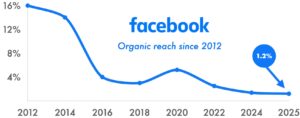“Honestly, I don’t know why I bother” is a phrase familiar to any parent. It’s usually muttered under the breath as a lovingly prepared lunch returns home from school uneaten, or a fun activity ends in collective meltdown. It is a sigh of defeat; a weary acknowledgment that, come tomorrow, we’ll be back rolling that boulder up the hill again.
We humans are strangely drawn to doomed behaviours. We are eternal optimists, hardwired to believe today will be the day, unable to remember the past and thereby condemned to repeat it. We are Wile E. Coyote rummaging through our box of Acme gadgets to find the perfect contraption to finally catch that pesky Road Runner.
We are every sports fan at the start of a new season, every gambler staring at the dice, every online dater swiping right. We are capable of wilful blindness, selective hearing and short term memory loss as the occasion demands. This time it will be different, we tell ourselves. It almost never is.

Our collective vocabulary has hundreds of variations to express this futility. Francis Bacon wrote of building castles in the air, Don Quixote tilted at windmills, and Thomas Fuller carried coals to Newcastle. We get blood from stones, scream at the wind and flog dead horses. I think (but can’t be sure) George W Bush was heading in that direction when he referred to not getting fooled again.
To this distinguished list of literary idioms, I hereby propose a new entry. A phrase that encapsulates the insanity of doing the same thing over and over again and expecting different results. I give you “posting on Facebook”.
Let’s look at how to use it in a sentence. Examples include “Nobody’s listening to me, I’d be as well to post my thoughts on Facebook.” Or “You may as well post on Facebook as write to your local politician. You’ve as much chance of anyone taking notice.”
(It turns out the above example is unfair on politicians. In 2024, the UK government actually responded to 79% of communications received within 20 days. Unfortunately there is no data on the quality of the responses, or the satisfaction levels of the letter-writing constituents.)
The organic reach on Facebook is now reported to be 1.2%. In plain English, that means if you’ve got a thousand followers, then twelve lucky souls somewhere in the digital ether might actually read your post. Roughly the same odds as scribbling your thoughts on a napkin and tying it to a passing pigeon.

The internet is littered with marketeers offering tips on how brands can increase their organic social media reach. They use terms like “adjusting your content schedule” or “optimising for the algorithm”. They are missing the point.
The decline in organic reach hasn’t happened by accident. Nobody at Facebook HQ (presumably a volcanic island fortress) is scratching their heads wondering how to fix it. It doesn’t take Warren Buffett to look at their $164 billion in annual revenue, 97% of which comes from advertising, and understand that crushing organic reach is the business model. Your posts aren’t failing; you’re just not paying.
There’s a term for what has happened to Facebook over the past 15 years: enshittification.
This beautifully blunt description comes courtesy of Cory Doctorow, whose book of the same name captures the natural history of technology’s descent into self-serving chaos:
- Phase One: Platforms are good to their users (in order to attract them).
- Phase Two: They abuse the users to make things better for their business customers (in order to make money).
- Phase Three: They abuse their business customers (in order to make even more money), and become “a giant pile of sh*t”.
For Facebook, Phase One lasted up until 2010 when your feed actually felt like a window onto the lives of your friends. Phase Two kicked in once ads began crowding out content. And Phase Three arrived from 2016, as viral sensationalism took over, and the term “echo chamber” embedded itself into our lexicon.
An easy way to understand whether enshittification has taken place is to consider whether today’s platform would have survived its own launch. Imagine if the 2005 version of Facebook included the firehose of sponsored nonsense that we take for granted twenty years later. That there’s now a paid ad-free option reads like the company’s reluctant nod towards its own inadequacy.
Once you recognise the pattern, you see it in every other platform, from social media, to publishing, food delivery, and e-commerce. Take a bow Amazon, Deliveroo, X, and pretty much anyone else sitting behind Donald Trump at his inauguration.

What makes enshittification so insidious is its inevitability. Where Facebook led, the rest have followed, each one embracing ads, controversy and clickbait, extracting data at every click, slowly corrupting themselves as a portrait of their original form decays somewhere in an attic. Sigh.
But of course, it’s not personal, Sonny. It’s strictly business. Shareholders demand growth. Better a profitable pile of sh*t than a loss-making platform full of happy customers.
The wisdom of this strategy will reveal itself in time. For now, brands and place organisations around the world face a choice: funnel their marketing budget into ads that feed the social media beast, or invest in their own platforms where they control the communication, reward loyalty, and deliver value to their community. Which feels like a choice between junk food and superfood.
We humans may have masochistic tendencies, but we also have breaking points. Eventually we’ll stop banging our heads against a wall, screaming ourselves hoarse or posting on Facebook. Something better will come along that reminds us why we bother.